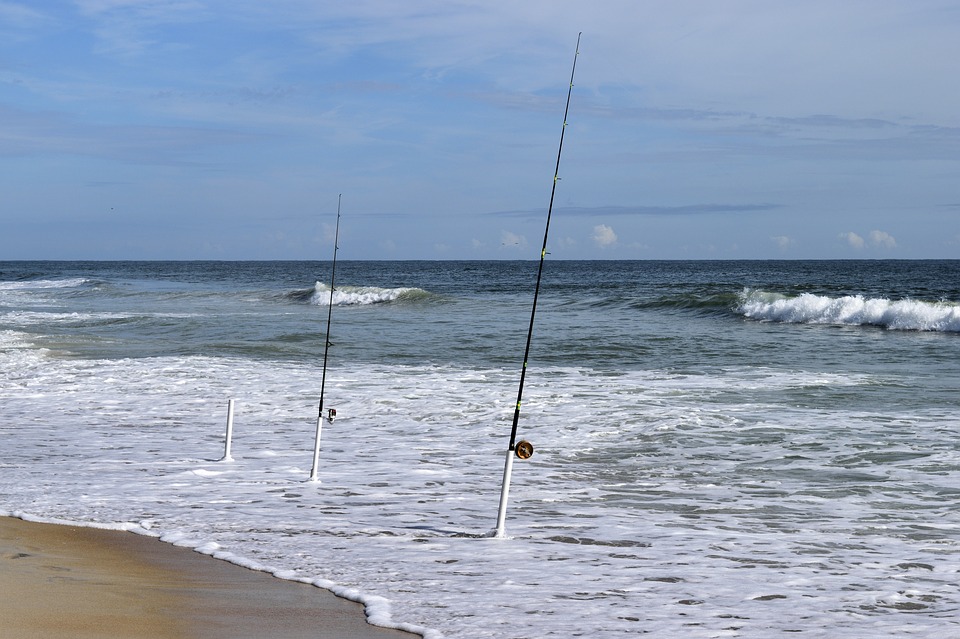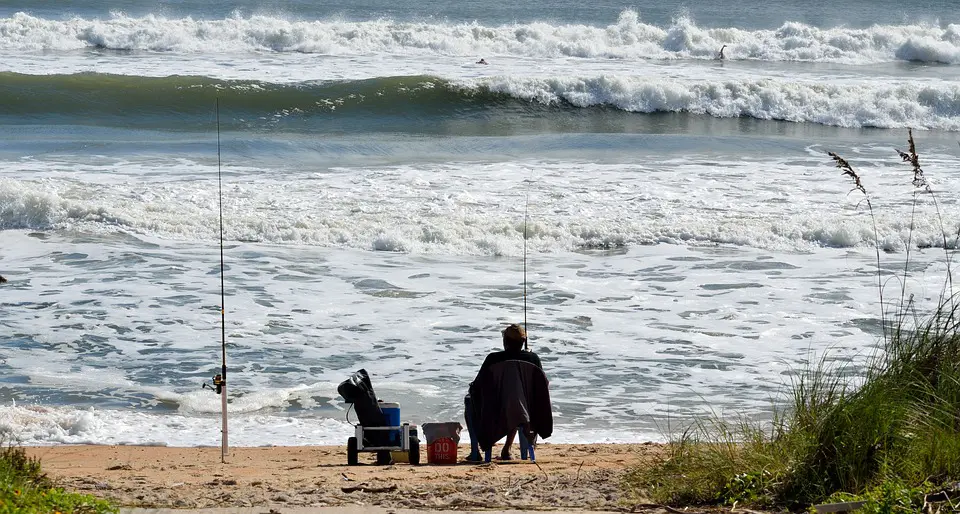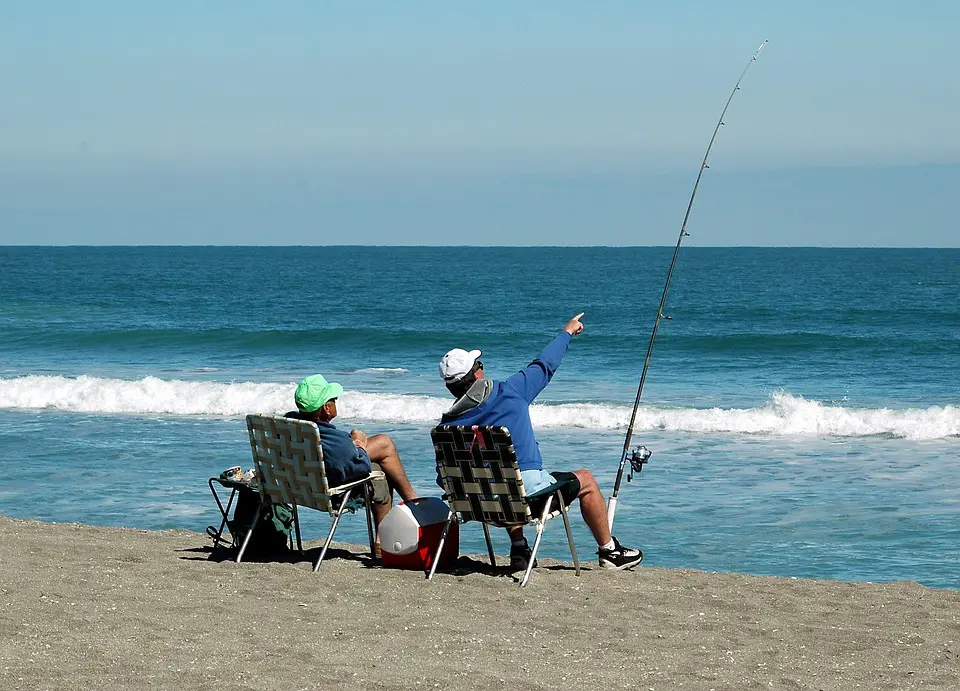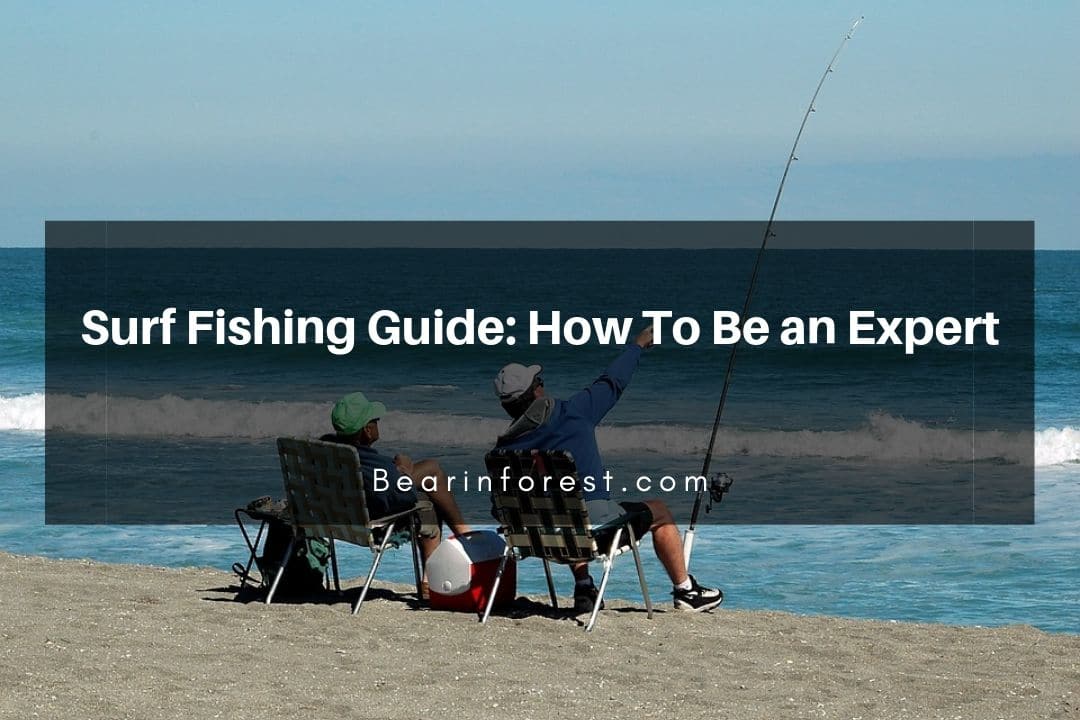Surf fishing is a fun and popular form of fishing that allows anglers to catch fish right from the shoreline of their favorite beach. There are certain challenges when it comes to surf fishing: you have to cast further and more accurately to reach the best spots, fish in the ocean tend to be larger and stronger, and you also have to fight saltwater conditions and tough ocean waves and currents.
Despite these challenges, surf fishing can yield amazing results for those who are experienced. Aside from knowing the basics of how to cast and how to operate fishing gear, there are a few tips and tricks used by experts to find success while surf fishing.
Use the Right Equipment

You may have your standard fishing gear that you use for all of your fishing trips, but surf fishing requires the right type of gear to optimize your chances of making a catch and to keep your equipment safe.
Saltwater, and even saltwater air on the shoreline, is corrosive to metals and can damage your equipment. Surf fishing gear should also be stronger and more durable to withstand strong currents and stronger fish - you don’t want your reel or fishing line to break while fighting a big catch.
If you’re committed to becoming an expert surf fisher, invest in sturdy, high quality surf fishing gear. Find a strong, long surf fishing rod, a reel that is made for saltwater and that has the strength to reel in big fish, and look into the best line for surf fishing. You can find gear that fits your preferences that is also durable enough to withstand the rigors of surf fishing.
Find the Best Time to Surf Fish

Fish are always present in the ocean, of course, but there are better and worse times to try surf fishing. Many anglers will tell you to go at dawn or at dusk, as fish are closer to the surface and more likely to bite in low-light situations.
Another aspect that should influence when you go surf fishing is the tides. The tides affect where the fish are and how they move, so tracking the tides on your beach of choice can help you improve your catch rate when surf fishing. Aim for two hours before and two hours after high tide as peak fishing time.
High tide pulls the fish towards the shoreline, so you won’t have to cast as far. Some will say that right at high tide is the best time, but when the tide is still (a slack tide) there is less movement, and the fish are less likely to bite. Instead, aim for the times right before and after high tide so that the fish are being actively pulled toward you, as the movement will make it easier to get a bite. If high tide falls around dawn or dusk, even better.
Do Your Research
Before you hit the beach, research the area where you’re fishing. Consult the internet, or ask local fishers or tackle shop employees. Find out their advice on things like best time and place to fish, and also find out what you might catch locally. Knowing what fish are in the water can help you tailor your techniques toward those fish.
Different fish prefer different bait and lures, so finding out what’s out there can help you make more informed decisions. You may depend on your usual trusted lures to do the job, but a surf fishing expert will alter their strategy and lures to fit the fish they are aiming to catch. Knowing what fish you’re aiming for can also change your strategy in terms of where to cast, what line and rig to use, and more.
Survey the Water

Check out the beach before you go surf fishing. Many experienced surf fishers survey the water at low tide to get a better idea about any marine obstacles, sand bars, gullies, and other information about the terrain. If you spot good or bad areas during low tide, you’ll know to either aim for or avoid those spots when you’re fishing during high tide.
Once you’re fishing, knowing what to look for on the water can further help you find success. Aim for areas of the ocean with smooth, still waters - this usually suggests depth, which means it could be an area full of fish. Short, choppy, breaking waves usually means the water is shallow, so there’s less chance of you making a catch.
Stay Safe While Surf Fishing
Take these tips and apply them during your next surf fishing expedition. Hopefully, this advice will help you catch more fish and put you on the path to becoming an expert surf fisher.
Remember to always stay safe while surf fishing. Be careful with sharp objects and wary of any hooks lost in the sand and always stay aware of your surroundings. Be sure to wear sunscreen and a fishing hat to protect your skin, and bring clean water to stay hydrated.
